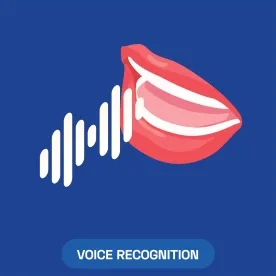Over the years, several plaintiffs have taken the extreme position that a text message is “an artificial or prerecorded voice” under the Telephone Consumer Protection Act (TCPA). In 2015, for example, a district judge in the Northern District of California noted that “while plaintiff argues that the TCPA’s definition of ‘voice’ is ‘not limited to verbal communications,’ he presents no authority for the argument that a text message can have a ‘voice’ — artificial, prerecorded, or otherwise.”[1] Even though this argument is flat out contrary both to the TCPA’s statutory language and common sense, it has not stopped other plaintiffs from making the argument in an attempt to sidestep having to establish use of an automatic telephone dialing system under 47 U.S.C. § 227(b)(1)(A):
It shall be unlawful for any person . . . (A) to make any call (other than a call made for emergency purposes or made with the prior express consent of the called party) using any automatic telephone dialing system or prerecorded voice . . . . ;
Following Facebook’s belt-tightening over what qualifies as an automatic telephone dialing system, it is no surprise to see plaintiffs attempt to breathe life into the argument. Recently, a district judge in the Central District of California addressed the argument in Eggleston v. Reward Zone USA LLC[2] in what may be the first decision to address this question post-Facebook.[3] Similar to Glauser, here the plaintiff alleged that a defendant’s “text messages violated § 227(b) because they used an ‘artificial or prerecorded voice.’”[4] The Court did not express any sympathy for plaintiff’s argument: “Plaintiff's interpretation is simply beyond the bounds of common sense.”[5]
The Court went on to quote Webster’s dictionary to emphasize the meaning of the word “voice,” a “sound produced by vertebrates . . . especially sound so produced by human beings.”[6] “[I]t is not plausible that Congress intended the word ‘voice’ in the TCPA to carry the tertiary, metaphorical meaning that Plaintiff suggests.”[7] The Court concluded by noting, “[i]ndeed, as illustrated by the absurd result discussed above, Plaintiffs interpretation would ‘take a chainsaw’ to the nuanced problems meant to be addressed by the TCPA ‘when Congress meant to use a scalpel.’”[8]
While this case may not stop every creative plaintiff from trying to raise the argument in the future, it builds on a body of case law shutting the door on outlandish post-Facebook arguments.
FOOTNOTES
1 Glauser v. GroupMe, Inc., No. C 11-2584 PJH, 2015 U.S. Dist. LEXIS 14001, at *20 (N.D. Cal. Feb. 4, 2015).
2 No. 2:20-cv-01027-SVW-KS, 2022 U.S. Dist. LEXIS 20928 (C.D. Cal. Jan. 28, 2022).
3 Facebook, Inc. v. Duguid, 141 S. Ct. 1163 (2021).
4 Id. at 11.
5 Id.
6 Id. at 12.
7 Id.
8 Id. at 13-14 (citing Facebook, Inc., 141 S. Ct. at 1171 (2021)).





 />i
/>i

